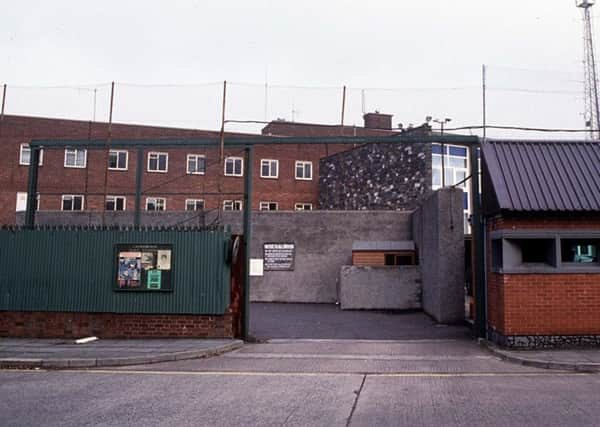'˜No evidence' police knew of raid in advance


Castlereagh police station in east Belfast was burgled on St Patrick’s Day 2002.
Intruders escaped with records on police officers and their agents inside paramilitary groups.
Advertisement
Hide AdAdvertisement
Hide AdA former officer had alleged that police had advanced warning of the raid, but chose not to stop it for political reasons and in order to protect an informant.
But Police Ombudsman, Dr Michael Maguire, said his investigators found no evidence that police had any advance information which would have allowed them to prevent or disrupt the incident.
In fact, they discovered that police had initially considered the possibility that elements of the military or security community had been responsible, and it was only later that attention switched to the IRA.
Dr Maguire said: “There was nothing to suggest that police had received any specific information that would have allowed them to prevent or disrupt the burglary. In fact everything suggests that that was not the case.
Advertisement
Hide AdAdvertisement
Hide Ad“The only information of a possible security threat that we found in police records was general and non-specific in nature, and offered nothing which would have allowed police to take preventative measures.”
Police Ombudsman investigators interviewed the former officer who made the allegations (Man A). He had retired from the police in the year before the break-in, having spent more than a quarter of a century in Special Branch.
He said he had been told by a former colleague (Man B) that police had received information prior to the aggravated burglary that the IRA were planning to break in to a police facility, and knew this to refer to Castlereagh.
He claimed Man B had told him that Special Branch held documentation confirming this to be the case.
Advertisement
Hide AdAdvertisement
Hide AdMan A, however, provided no documentary evidence in support of his claims.
Man B acknowledged to investigators that there had been some talk between officers that the PSNI may have had prior knowledge about the break-in, but he dismissed it as speculation and said he had never seen any information to confirm it.
He suggested that Man A must have been confused about what he had heard, and said his interpretation was inaccurate.
Meanwhile, enquiries established that a book handed over to police by Man A at the end of his career, which he said contained names of his contacts over the years, had not been among the items stolen, as he had feared.
Advertisement
Hide AdAdvertisement
Hide AdIn the wake of the raid, police advised a number of people, including former and serving police officers, that information about them was amongst the material taken from the police station.
Several former police officers subsequently sued the Chief Constable for negligence and breach of statutory duty.
A number of other former officers who had held key positions at the time of the break-in were also spoken to by the Ombudsman’s office.
One described the allegations as “a complete fabrication”, while another questioned the credibility of Man A’s account.
Advertisement
Hide AdAdvertisement
Hide AdInvestigators examined information about the police’s primary initial hypothesis as to who was responsible, about their investigative strategies, the flow of intelligence and the main lines of enquiry.
This revealed that in the early stages police believed that the burglary must have had inside assistance, and an early hypothesis was that it had been carried out by elements of the intelligence community or the military.
Whilst the involvement of paramilitaries had been considered, it was felt that they would not have had the capabilities. It was only later that the focus shifted and the principal theory became that the burglary had been carried out by the IRA.
Investigators also conducted a detailed review of intelligence held by police in the two years prior to the burglary.
They found information of potential relevance, but it provided no specific details about the nature of the threat or the possibility of thwarting it.